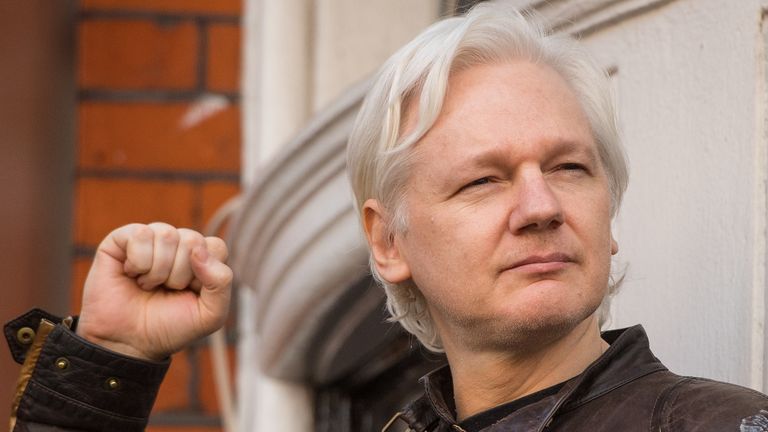US authorities have agreed to drop their demand for Julian Assange to be extradited from the UK after reaching a plea deal with the WikiLeaks founder.
In return for pleading guilty to one count of conspiracy to obtain and disclose national defence information, Assange will be sentenced to time served, 62 months – the time he has already spent in a British prison, according to court documents.
Once the guilty plea is accepted by a judge, the 52-year-old will be free to return to Australia, the country of his birth.
American prosecutors had alleged that Assange put lives at risk when he helped former US army intelligence analyst Chelsea Manning steal diplomatic cables and military files that WikiLeaks put online in 2010.
He has been locked in a legal battle in the UK over his extradition, which included him entering the Ecuadorean Embassy in London in 2012 prior to his detention in Belmarsh prison – where he has been since May 2019.
‘Julian is free!’
In a post on X, WikiLeaks said Assange left Belmarsh on Monday morning after being granted bail by the High Court. By the afternoon he was at Stansted Airport where he boarded a plane and left the UK.
“After more than five years in a 2×3 metre cell, isolated 23 hours a day, he will soon reunite with his wife Stella Assange, and their children, who have only known their father from behind bars,” the company said.
Mrs Assange also took to social media, sharing a video montage of her husband in a car and then boarding a plane.
She wrote: “Julian is free!!!!
“Words cannot express our immense gratitude to YOU – yes YOU, who have all mobilised for years and years to make this come true. THANK YOU. THANK YOU. THANK YOU.”
Assange’s plea and sentencing is scheduled for Wednesday morning, local time in Saipan, the largest island in the Mariana Islands.
The hearing is taking place there because of Assange’s opposition to travelling to one of the 50 US states and the court’s proximity to Australia.
Craig Murray, a friend of Assange, told Sky News that the news was “absolutely wonderful”.
He said: “The whole family is totally elated that we have finally got an end to this terrible saga.”
Mr Murray said the entire ordeal has been “very taxing” on Assange with his imprisonment taking a toll on both his physical and mental health.
He added: “We are lucky that he is a very resilient man and he will recover and we will get or Julian fully back.”
More than a decade-long fight
Assange has been fighting extradition to the US for more than a decade.
In a January 2021 ruling, then-district judge Vanessa Baraitser said he should not be sent to the US, citing a real and “oppressive” risk of suicide, while ruling against him on all other issues.
Later that year, US authorities won a High Court bid to overturn this block, paving the way towards Assange’s extradition.
In June 2022, the UK government approved the extradition of Assange to the US, with then-home secretary Priti Patel having signed the extradition order.
Read more from Sky News:
Ship in deadly Baltimore bridge collapse leaves disaster site
Pirates Of The Caribbean actor dies after shark attack
Family sues NASA after home is hit by space station debris
Back in February of this year, he made one final attempt under UK law to avoid being sent to the US.
In March, Dame Victoria Sharp and Mr Justice Johnson dismissed most of Assange’s legal arguments – but said unless assurances were given by the US, he would be able to bring an appeal on three grounds.
These assurances were that Assange would be protected by and allowed to rely on the First Amendment – which protects freedom of speech in the US – that he is not “prejudiced at trial” due to his nationality, and that the death penalty is not imposed.
Three months later in May, two High Court judges ruled that he would be allowed to appeal against being extradited, would not face the death penalty and that he could rely on the First Amendment if he faced a trial for spying.




















